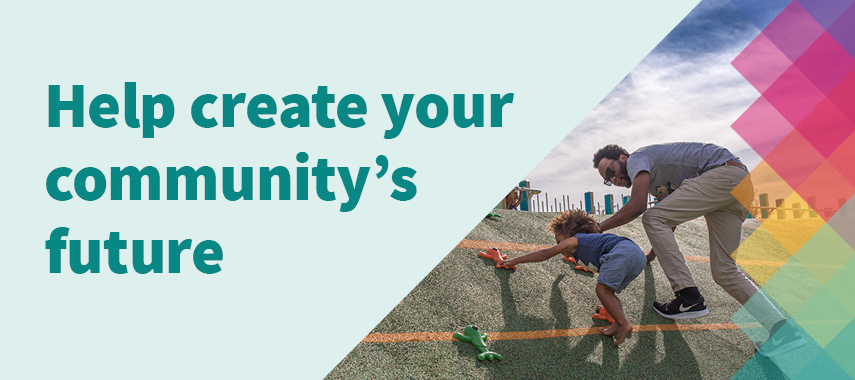The draft strategy is our continued commitment to how we will work with others to build a healthy, happy and resilient Christchurch. We want to hear your thoughts on it.
Share this
 Consultation has now closed
Consultation has now closed
Check our strategy page(external link) for ongoing information about the strategy in action.
Council approved Te Haumako Te Whitingia Strengthening Communities Together Strategy on Thursday 7 April 2022. Minutes from this meeting are available here(external link). An external launch of the strategy is planned for July 2022.
The hearings panel met on 6 and 13 December 2021 and 31 January 2022 to hear from submitters and receive a staff report. Meeting minutes are available on our website(external link)(external link). One of the changes made through the consultation and hearings process was a name change to the Draft Te Haumako Te Whitingia Strengthening Communities Together Strategy. The hearings panel report recommending the adoption of the strategy will be presented to Council on 7 April 2022.
Consultation on the draft Ōtautahi Christchurch Community Strategy. We were accepting feedback from 10 September to 25 October 2021. During this time we heard from 80 individuals, businesses and organisations. The table of consultation feedback is now available.
Watch our video.(external link)
Since the Strengthening Communities Strategy was first launched in 2007, our city has changed dramatically, with much of this change as a result of adversity. These challenges have tested even the strongest of us but have also been the catalyst for creativity, innovation and collective action.
This refreshed draft strategy – renamed Ōtautahi Christchurch Community Strategy 2021-2031 [PDF, 2.4 MB] – was developed to better align with current and anticipated community needs and aspirations. As our city grows and changes, so do the needs of our diverse communities – including the most vulnerable amongst us. The strategy reflects our continued commitment to building, in partnership with others, inclusive, safe and resilient communities.
Key priority focus areas
We’ve specifically identified the following high-priority areas that we intend to focus on over the next five years, based on what communities have told us is important to them. As a result, we intend to:
- Work to better understand what excludes people from fully participating in their communities and across Council services. We will improve the capture of consistent and relevant data, set clear targets and partner with communities and others to ensure more equitable and inclusive opportunities for all.
- Increase positive perceptions of the central city after dark. Encourage community-led activities that increase volunteering in local neighbourhoods to increase inclusion and a sense of belonging.
- Ensure that the community’s priorities, values, aspirations and concerns are incorporated at all levels of the organisation through policy development, planning, decision making, service delivery and review. By reframing our engagement practices, we will increase trust and satisfaction that people and communities can authentically shape and influence their futures.
- Support and enable communities to respond to the impacts of climate change and emergencies with a particular emphasis on underrepresented or vulnerable communities.
Pillars
Our draft Ōtautahi Christchurch Community Strategy contains a clear vision, pillars of work, objectives and actions that will help guide the work we do in enhancing communities through partnership with others over the next 10 years.
We’ve developed the following four overarching pillars and 16 objectives, focusing on specific areas, to help achieve active and connected communities.
|
|
|
|
|
Objectives and actions
The city actively promotes a culture of equity by valuing diversity and fostering inclusion across communities and generations.
 Objective 1.1
Objective 1.1
Develop and enhance relationships with tangata whenua via mana whenua and Te Hononga.
| Mahinga actions | Examples |
| Promote learning and reference to Te Ao Māori in our work across Council and with communities |
|
| Actively contribute to supporting strong and resilient Māoritanga within communities; fostering and maintaining relationships with Māori community providers and networks. |
|
Objective 1.2
Build, nurture and strengthen relationships with Pacific communities.
| Mahinga actions | Examples |
| Provide culturally appropriate channels for Pacific communities to have a voice and to share their culture. |
|
| Actively contribute to building strong and resilient Pacific communities, fostering and maintaining relationships with Pacific groups and networks. |
|
Objective 1.3
Continue to build on the relationships and achievements developed through the Multicultural Strategy – Our Future Together
| Mahinga actions | Examples |
| Work with culturally and linguistically diverse (CALD) communities and sector networks to build capability and to promote and celebrate diversity |
|
Objective 1.4
Harness the strengths of diverse communities and address issues of social exclusion.
| Mahinga actions | Examples |
| Continue to enhance the capacity and aspirations of the youth, disability, older adults, rainbow, and other communities of interest or identity |
|
Objective 1.5
Support groups involved in providing access to arts, culture, heritage, recreation, and those who care for the environment.
| Mahinga actions | Examples |
| Grant funding enables the delivery of a broad range of opportunities at community board and metropolitan levels. |
|
| Provide accessible information on the opportunities available locally and citywide, through appropriate channels. |
|
Objective 1.6
Facilitate and promote lifelong learning opportunities for all.
| Mahinga actions | Examples |
| Encourage active participation and connection to non-formal community-based learning opportunities. |
|
We support and help build connections between communities and their places and spaces to foster a sense of local identity, shared experience and stewardship.
 Objective 2.1
Objective 2.1
Encourage communities to create and sustain a sense of local identity and ownership.
| Mahinga actions | Examples |
| Enable and support community-led placemaking initiatives. |
|
| Work with volunteers to encourage care for their local neighbourhoods. |
|
| Support local events that connect people. |
|
Objective 2.2
Work with new and emerging communities in both rural and urban areas to build a sense of belonging.
| Mahinga actions | Examples |
| Initiate engagement with residents and stakeholders in new and emerging neighbourhoods (including the central city). |
|
| Help establish residents associations and community groups as requested. |
|
| Help welcome and settle new residents. |
|
Objective 2.3
Support the community activation and kaitiakitanga of public places and spaces.
| Mahinga actions | Examples |
| Support community-led activation and management of facilities through a partnership model. |
|
| Encourage and promote volunteering opportunities. Continuous development of volunteer programmes to upskill and recognise our volunteers. |
|
Residents and groups in the wider community are socially and actively engaged and are able to initiate, influence and make decisions that affect their lives.
 Objective 3.1
Objective 3.1
Empower and equip residents and groups to participate in decisions affecting their communities and neighbourhoods.
| Mahinga actions | Examples |
| Ensure mana whenua are represented, as a decision-maker in all areas of mutual interest. |
|
| Ensure local government engagement processes are appropriate, with clear pathways to involvement. |
|
| Increase participation of children and youth to enable them to influence decision-making; nurture emerging leadership. |
|
| Stimulate more interest in local democracy, especially electoral participation. |
|
Objective 3.2
Increase general understanding of the decision-making process and how people can have their say.
| Mahinga actions | Examples |
| Let people know how they can influence what happens in their communities and how they can have their say |
|
| Let people know what happens to their feedback. |
|
Objective 3.3
Provide well-informed support and advice to staff and elected members for effective decision-making.
| Mahinga actions | Examples |
| Document and share community issues and trends. |
|
| Community boards’ plans are developed across the city. |
|
| Staff across council work together more seamlessly to respond to community needs and aspirations. |
|
Objective 3.4
Increase volunteering opportunities across the Council and the wider community.
| Mahinga actions | Examples |
| Support and acknowledge volunteers and those managing volunteers. |
|
| Promote and direct people to our volunteering opportunities. |
|
| Explore Council skills-share with community groups. |
|
People feel safe in their communities and neighbourhoods and work together to understand, adapt and thrive in the context of change and disruption.
 Objective 4.1
Objective 4.1
Work with communities to prepare for and respond to emergencies, and also increase climate resilience and adaptation action.
| Mahinga actions | Examples |
| Support and resource community approaches to sustainable environmental practices and climate action. |
|
| Support communities to develop Community Response Plans, working alongside residents associations, neighbourhood groups, and sector networks. |
|
| Ensure community adaptation plans are developed in key areas across the district impacted by climate change. |
|
Objective 4.2
Support the capacity of the community and voluntary sector to plan, adapt and respond to risk, disruption and change.
| Mahinga actions | Examples |
| Nurture and support new and emerging community leadership through capacity building. |
|
| Work collaboratively with other funders to deliver high trust, community grant funding. |
|
Objective 4.3
Support neighbourhood and city-wide initiatives aimed at increasing a sense of safety and wellbeing.
| Mahinga actions | Examples |
| Develop neighbourhood and metropolitan safety partnerships, identifying priority areas for working together and increase perceptions of safety in the Central City. |
|
| Deliver our graffiti prevention and removal programme. |
|
If you're having any trouble viewing these actions, please refer to pages 25-30 of the draft strategy.
Come and talk to us
Staff will be available to discuss the Draft Ōtautahi Christchurch Community Strategy at the following drop-in sessions.
- Tuesday 21 September, 3pm to 5pm Rārākau: Riccarton Centre, 199 Clarence Street, Riccarton, Christchurch 8053
- Wednesday 22 September, 4pm to 6pm New Brighton Community Board Room, Corner of Bereford and Union Streets, New Brighton, Christchurch 8061
- Thursday 23 September, Midday to 2pm Eastgate Mall, 20 Buckleys Road, Linwood, Christchurch 8062
- Thursday 23 September, 4pm to 6pm St Johns the Evangelist Church, 2 Saint Johns Street, Woolston, Christchurch 8062.
- Friday 24 September, 3pm to 5pm Akaroa Four Square, 72 Rue Lavaud, Akaroa 7520
- Tuesday 28 September, 4pm to 6pm Fendalton Library, 4 Jeffreys Road, Fendalton, Christchurch 8052
- Wednesday 29 September, 4pm to 6pm South Christchurch Library, 66 Colombo Street, Cashmere, Christchurch 8022
- Wednesday 13 October, 4pm to 6pm John Wardle Room, St Albans Community Centre, 1049 Colombo Street, St Albans, Christchurch 8014
Please note, these sessions may need to be postponed or cancelled if COVID alert levels change.
Can’t make these meetings? If there is a community meeting you would like us to attend, please let us know.
Draft Ōtautahi Christchurch Community Strategy [PDF, 2.4 MB]
Draft Ōtautahi Christchurch Community Strategy (Word) [DOCX, 1 MB] - a reader-friendly Word version, which is an easier format for individuals who use software to help accessibility. This will assist our visually impaired and English as a second language communities.
Ōtautahi Christchurch Community Strategy Overview Document [PDF, 1 MB] - briefly overviews the information included in the draft strategy.
Ōtautahi Christchurch Community Strategy Consultation Document [PDF, 712 KB]
Ōtautahi Christchurch Community Strategy Consultation Document (Word) [DOCX, 48 KB] [DOCX, 48 KB] - a reader-friendly Word version, which is an easier format for individuals who use software to help accessibility. This will assist our visually impaired and English as a second language communities.
Strengthening Communities Strategy 2007-2017 Evaluation Report [PDF, 6.1 MB]
Strengthening Communities Community Engagement Summary Report [PDF, 601 KB] - views captured during our consultation between August and October 2020
Council committee to consider draft strategy prior to consultation - 25 August 2021
The draft Ōtautahi Christchurch Community Strategy (formerly called the draft Strengthening Communities Strategy) was considered at the Council’s Sustainability and Community Resilience Committee meeting(external link)(external link) on Wednesday 25 August 2021, where it was approved to go out for public consultation.
At this stage, public consultation is due to start on Friday 10 September 2021
Community Engagement Summary Report and next steps - 2 July 2021
Thank you again for your feedback during early engagement on a new Strengthening Communities Strategy for Christchurch. Views, received between August and October 2020, are summarised in the Community Engagement Summary Report [PDF, 7.5 MB] and have now been included in the draft Strengthening Communities Strategy. This will be considered by the Council’s Sustainability and Community Resilience Committee at the end of July. We then expect to consult on the draft strategy in September and early October.
During the consultation period, information sessions will be held at various locations so that you will be able to discuss the draft strategy with members of the project team. Proposals, aimed at providing an action plan to build strong, resilient communities, will also be discussed by Council staff at regular network meetings with local organisations.
Early engagement feedback on Have Your Say - 4 November 2020
We received 60 responses through Have Your Say during the early engagement phase from 7 August to 14 September 2020. Feedback from 42 community groups and 14 individuals was analysed. [PDF, 16 KB] (One further submission was late and another three were anonymous so were not included.)
Next steps
In addition to Have Your Say, feedback from workshops, discussions and input from a diverse range of groups and individuals across Christchurch and Banks Peninsula is now being collated for a pre-engagement summary report which we will send to you in early December.
We then plan to take the draft Strengthening Communities Strategy refresh document to the Council’s Sustainable Community Resilience Committee meeting on 28 February 2021, prior to consultation. This is expected to take place in April and May 2021.
Consultation - 7 August to 14 September 2020
We're not starting from scratch. We're building on our existing strategy and what we've heard from residents and communities over the past decade.
Over the next month, we want you to tell us how we should make the most of our biggest opportunities and challenges to build strong communities over the next 10 years.
Workshops and discussions are being organised by staff in Community Board areas this month. Feedback is also being gathered by a wide range of community groups including rūnanga, the City Mission, Canterbury Youth Workers Collective, Age Concern Canterbury and the Social Equity and Wellbeing Network.
Questions prepared for the workshops are below for any residents and groups who would like to contribute during
this early engagement stage.
All feedback will be considered for the draft Strengthening Communities Strategy that will go out for consultation early next year.
We’d like to know if you think we’ve got it right. Is there anything we’ve missed? Do you have any feedback on how we should develop and deliver the action programmes within the strategy to help drive change?




